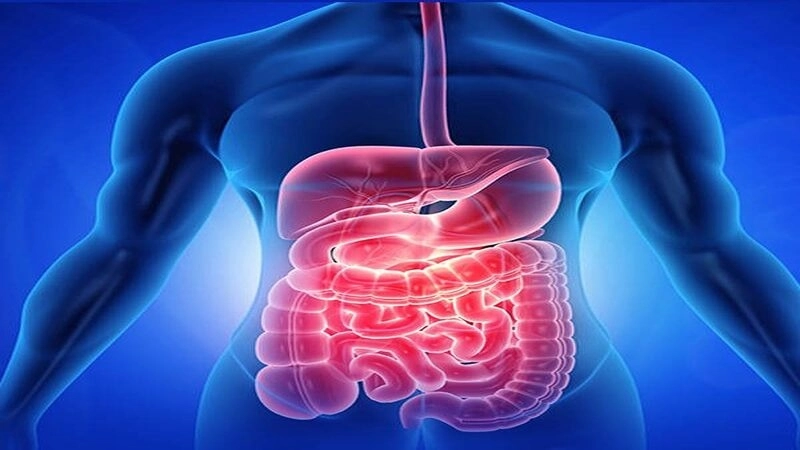Fissure is a common condition that involves small tears or cracks in the lining of the anus. These tiny fissures cause a lot of discomfort and pain. In this article Dr. Rohit Goyal, a leading Gastroenterologist in Dwarka, explains everything about fissure disorder, covering its causes, symptoms, and treatment in detail.
Types of Fissures
Fissures can be acute or chronic in nature:
- Acute Anal Fissures: Lasts less than six weeks. These fissures result from sudden trauma or injury, such as straining during bowel movements.
- Chronic Anal Fissures: Extends beyond six weeks. Chronic fissures develop from acute ones that haven’t healed properly or recurring due to underlying issues.
Depending on their location, fissures are further classified as:
- Posterior Fissures: Occur on the back of the anal canal. Posterior fissures cause discomfort during bowel movements and cause pain after defecation.
- Anterior Fissures: On the anterior (front) side of the anal canal. Anterior fissures cause pain during bowel movements and bleeding.
- Lateral Fissures: Occurs on the sides of the anal canal. Lateral fissures require a thorough examination.
What are the causes of fissures?
- Trauma during Bowel Movements: Fissures are caused as a result of trauma during bowel movements. In India, dietary habits vary widely. Inadequate fibre intake leads to constipation, increasing the strain during defecation and causing fissures.
- Chronic Constipation: India’s cuisine lacks uniformity in fibre content, making chronic constipation a common issue. Straining during constipated bowel movements exacerbates fissures.
- Inflammatory Bowel Disease (IBD): Conditions like Crohn’s disease or ulcerative colitis, both of which are on the rise in India are inflammatory conditions that can cause fissures.
Signs and Symptoms of Fissures
Common symptoms of Fissure
- Pain during Bowel Movements: Individuals often experience sharp pain during and after bowel movements, a main characteristic of anal fissures.
- Bleeding: Bright red blood on toilet paper or in the toilet bowl is a telltale sign, signalling a possible fissure.
- Itching and Discomfort: Fissure can cause persistent itching and discomfort in the anal region
How are Fissures diagnosed?
Diagnosing fissure involves tests including:
- Physical Examination: A gastro specialist doctor will conduct a physical examination, looking for visible signs of fissure.
- Sigmoidoscopy or Colonoscopy: A colonoscopy is a test for the colon involving a flexible tube with a light and camera being gently inserted through the rectum into the colon. This allows the doctor to examine the entire colon for any signs of abnormalities, such as polyps or inflammation.
Treatment of Fissure in Delhi
Any leading gastrology doctor who is an expert in fissure treatment, especially an anal fissure focuses on relieving symptoms and treating the problem simultaneously after discovering the exact cause. The treatment involves the following things:
Dietary Modifications
Increasing fibre intake through fruits, vegetables, and whole grains helps soften stools and prevents constipation. Adequate hydration complements this, making it easier to pass stools without straining.
Medicines for fissure treatment in Dwarka, Delhi
- Local Anesthetics: Topical ointments containing local anaesthetics, like lidocaine, provide relief by numbing the anal area. Applying these before bowel movements helps manage pain.
- Nitroglycerin Ointments: Nitroglycerin ointments relax the muscles around the fissure, promoting blood flow and aiding in the healing process.
- Calcium Channel Blockers: Medications, like diltiazem, may be prescribed to relax the sphincter muscles, reducing pain and facilitating healing.
- For chronic cases, doctors prescribe medications like muscle relaxants or oral nitrates.
Sitz Baths
Soaking the anal area in warm water, known as sitz baths, is soothing and promotes relaxation of the anal sphincter muscles. This simple home remedy helps give relief from discomfort and aids in maintaining cleanliness.
Stool Softeners
Fiber supplements are also suggested if dietary changes don’t work. It helps to prevent constipation, reducing the strain during bowel movements.
Botulinum Toxin Injections
Botulinum toxin injections are also taken into consideration. These injections temporarily paralyze the sphincter muscles, allowing the fissure to heal.
Fissure surgery in Dwarka, Delhi
The two types of surgery for Fissure include:
- Lateral Internal Sphincterotomy: Lateral Internal Sphincterotomy is used to treat anal fissures. During this surgery, a small incision is made in the internal anal sphincter muscle, which helps reduce muscle tension. By doing so, it alleviates pain and discomfort caused by anal fissures. The surgery is safe and effective, and also prevent recurrent fissure
- Fissurectomy: During this procedure, the Gastro surgeon removes a portion of the anal fissure. Unlike a Lateral Internal Sphincterotomy, where the doctor cut the internal anal sphincter muscle, a Fissurectomy focuses on excising the fissure itself.
Lifestyle Changes
Adopt a healthier lifestyle and prevent fissure recurrence. Regular exercise, maintaining a balanced diet, and not taking stress keep you fit and fine.
Side-effects of Fissure surgery
After fissure surgery, there are a few possible side effects:
- Infection
- Bleeding: Minor bleeding is common after surgery, with patients noticing clots and bright red blood. It can be easily managed in most cases by endoscopy or medicines.
- Fistula Formation: rare complication but may need reoperation
- Incontinence: Post-surgery incontinence may sometimes persist.
- Painful Bowel Movements
If you ever feel any kind of discomfort or any sign or symptoms of fissure, immediately consult an experienced Gastroenterologist in Delhi













